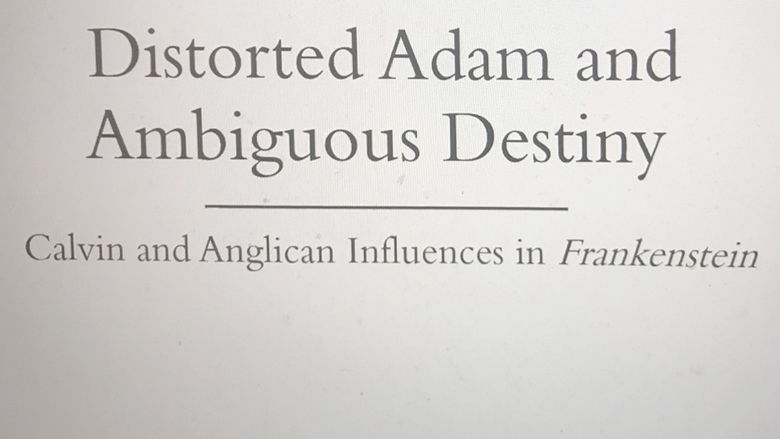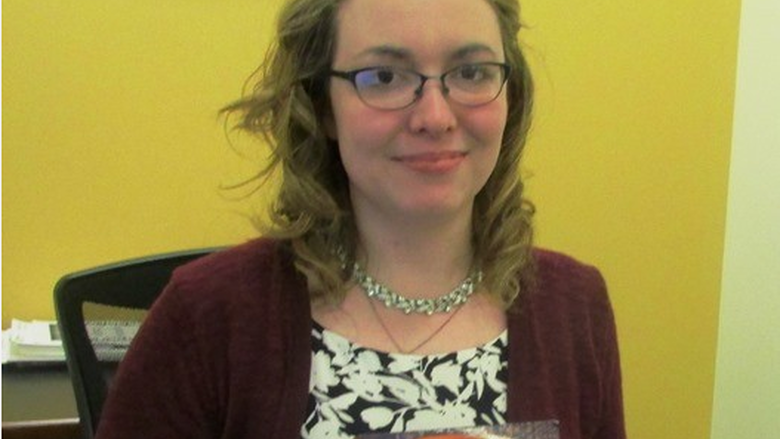"Best of Freshman Writing" has been published and three Penn State Scranton students have their work showcased on the website.
DUNMORE, Pa. — Penn State Scranton students Leah Byman, Steven Jarbola and Jack Meyer have had their essays chosen for publication in the annual “Best of Freshman Writing.”
The trio, now sophomores, were students in Associate Professor of English Kelly Wagers’ English 30 class in Fall 2017.
In the essays, students take strong stands on challenging issues, describing important personal experiences, explaining complicated processes, and using creative techniques to convey their messages.
Byman wrote “My Pride and Prejudice,” dealing with the topic of her transition to college and how it changed her outlook on her room at home, once thought of as a place of confinement, but now as a refuge. She wrote:
“My room used to feel like a prison. I realized I had developed pride, and thought it was strange to enjoy the comfort of my own home for too long. I thought being a homebody meant that a person was anti-social or had a very uneventful life. I used to want to go as far as I possibly could from my room. The last thing I wanted was the comfort of my own home. I had urges to escape my room, to see everyone, to do everything, but I would not give myself enough time to recharge. I had developed a prejudice that, unsocial, unambitious people stay in their rooms. I realized, despite my prejudice, that everyone needs time and space for themselves. I learned that constantly trying to escape my private life made me more stressed. I needed a space to debrief and to collect my thoughts before going back to my social and academic life.”
Jarbola took on the plight of millennials in his essay “Uncertainty":
“Idle meandering plagues my generation, and oftentimes I feel I’m just another of its casualties. This generation stands at the start of a new century with endless doors of possibility open, but it shakes, fearful of itself, afraid to enter any door. Uncertainty lies at the root of this apprehension. With a plethora of continuous advancements this generation is at the cusp of uncovering greatness. Millennials have the potential to devise a cure for cancer, colonize Mars, or develop an alternative to gasoline, and these possibilities just scratch the surface. Yet, instead of snapping into work, we’d rather Snapchat. The previous generation would attribute this to laziness, saying, “Those darn millennials have no work ethic. They’re nothing but lazy!” But, I don’t think it’s laziness that affects millennials; I believe it’s profound uncertainty. Even the most motivated and goal-driven millennials are struck by uncertainty. They have the means to build beautiful and purposeful creations, but uncertain of the outcome, they are afraid to try. I am a part of this uncertain generation, doing what’s required of me to survive but too afraid to branch beyond. I fear stepping over the brink.”
Meyer’s essay “Do Androids Dream of Regular Sheep Too?” used the "Blade Runner" movies as a springboard to a discussion on humanity and artificial intelligence:
“In ‘Blade Runner’ and ‘Blade Runner 2049,’ the question of whether or not replicants and humans are the same is irrelevant. Determining Rick Deckard’s physiological humanity is inconsequential to ‘Blade Runner’s’ themes. Traditional humanity becomes less important as humanity in Blade Runner’s future becomes defined by free will and conscious choice. Blade Runner’s philosophical commentary on what characterizes humanity is becoming more relevant as scientific knowledge increases at an unstoppable pace. Artificial intelligence and robots with human appearances already exist and such technology is rapidly evolving. The year 2019 is not far into the future, and the themes that Blade Runner explores about humanity and artificiality may soon reflect questions the human race will have to ponder. Berys Gaut writes that films “can suggest claims, illustrate them, get us to think about and imagine situations in which they are in play, test them against our affective reactions and detailed imaginative investigation, and so on” (Coplan 41). ‘Blade Runner’ and ‘2049’ encourage audiences to not only imagine the implications of inhabiting their fictional worlds, but to also make the philosophical argument that what defines humanity is empathy, sacrifice, and free will. The choices that Roy Batty and K make serve the explicit thematic purpose of illustrating that they possess true humanity beyond a physical level. The prospect of artificial humanity is quickly becoming a real part of society, and ‘Blade Runner’s’ proposed definition of humanity can give the world a positive message. Being physically human is unimportant, while possessing conscious humanity is what truly matters."
To read the full versions of these students' essays, go to: http://sites.psu.edu/bestof/category/2017bestof/.
"Best of Freshman Writing" is published on behalf of the University College English Council of Penn State to showcase the best essays from freshman-level writing courses across Penn State’s University College.
“The essays published here were nominated by Penn State professors who chose the most outstanding essays from their first-year writing courses,” according to a statement on the website by editor Ron George, lecturer in English at Penn State Mont Alto.
“In the essays, student-writers grapple with a variety of topics across a range of genres. My goal in publishing these essays is to honor the hard work and skill of our students and to share their voices with the Penn State community. That’s why I chose the tagline One University, Many Voices," said George.
“I hope you will enjoy the essays and appreciate the writers’ efforts as they challenge you to see the world through their eyes."
Authors who wish to have their work removed from the website can do so by contacting George at [email protected] or 717-749-6230.


